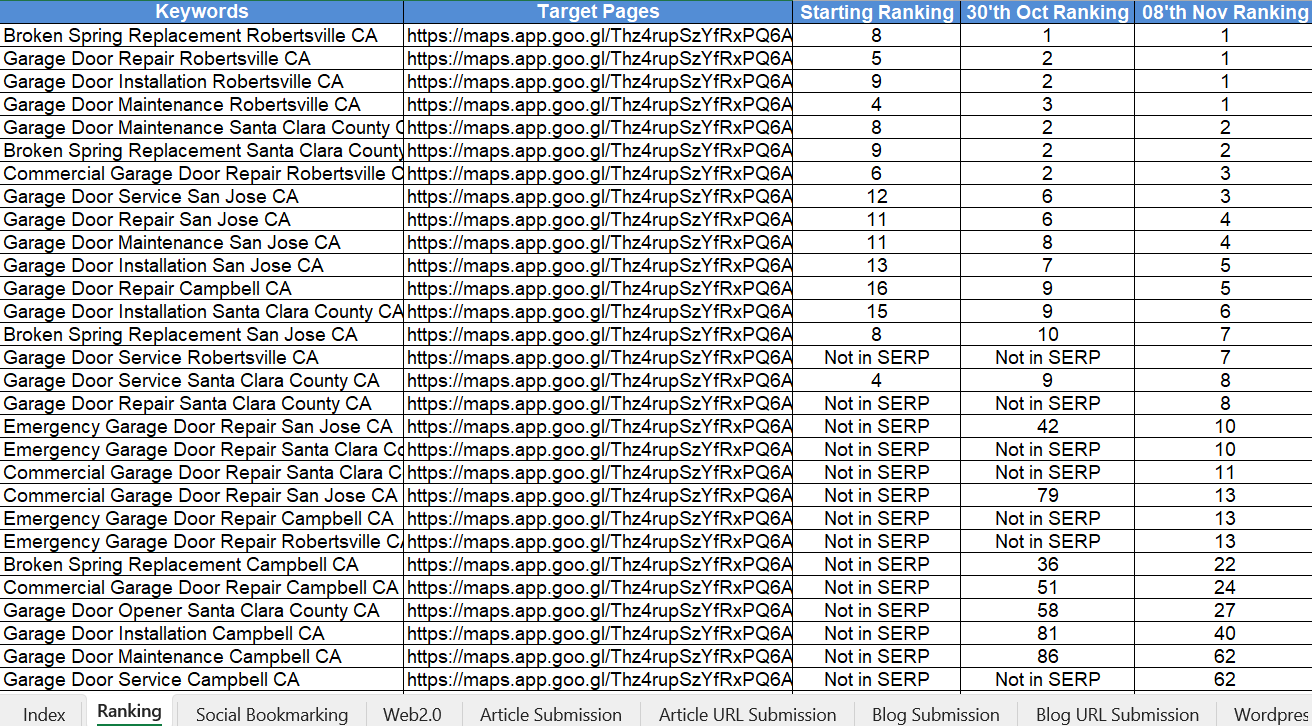Why AI Follow-Ups Are Essential for Commercial Real Estate Leads
Why AI Follow-Ups Are Essential for Commercial Real Estate Leads
Your Comprehensive Guide by Market Wiz
Table of Contents
- Introduction: The Need for AI in Lead Conversion
-
The Importance of AI-Powered Follow-Ups
- Timeliness & Personalization
- Overcoming Manual Limitations
-
Key Components of an AI-Driven Follow-Up System
- AI-Powered Email Marketing
- Chatbots & Automated Messaging
- CRM Integration
-
Implementing AI in Your Follow-Up Strategy
- Setting Up Drip Campaigns
- Integrating AI with Your CRM
- Personalizing Communication
-
Advanced Techniques and Tools
- Predictive Analytics & Machine Learning
- Retargeting & Multi-Channel Integration
- Case Studies & Success Stories
- Conclusion & Next Steps
- Frequently Asked Questions (FAQs)
- Additional Keywords for SEO & Content Strategy
Introduction: The Need for AI in Lead Conversion
In the competitive realm of commercial real estate, generating and converting leads efficiently is paramount. Traditional methods of follow-up often fall short in meeting the demands of modern buyers, leading to lost opportunities and decreased sales.
Artificial Intelligence (AI) offers a transformative solution. AI-powered follow-ups ensure that every potential lead is engaged with personalized, timely communication. This not only streamlines the lead management process but also significantly boosts conversion rates.
In this guide, Market Wiz will show you why AI follow-ups are essential for commercial real estate leads. We’ll cover the benefits of automation, the key components of an AI-driven system, practical implementation strategies, advanced techniques, and real-world success stories. Whether you're a seasoned professional or new to the industry, you'll gain actionable insights to enhance your lead conversion strategy.
The Importance of AI-Powered Follow-Ups
Timeliness & Personalization
One of the greatest advantages of AI is its ability to respond instantly. In commercial real estate, a quick response can make the difference between securing a deal or losing a lead. AI-powered follow-ups ensure that every inquiry is met promptly with a personalized message that addresses the specific needs of the prospect.
Personalization is key. AI systems analyze customer data to tailor messages, making potential clients feel valued and understood. This level of customization increases engagement and builds trust, which is essential for converting leads into clients.
Overcoming Manual Limitations
Manual follow-up processes are not only time-consuming but also prone to human error. As the volume of leads grows, it becomes challenging to maintain consistency and quality in every interaction. AI-powered systems eliminate these issues by automating routine tasks, ensuring that no lead is overlooked.
By automating follow-ups, your team can focus on high-value tasks such as closing deals, while AI handles the initial communication and nurturing of leads.
Key Components of an AI-Driven Follow-Up System
AI-Powered Email Marketing
AI-powered email marketing platforms leverage machine learning algorithms to deliver personalized drip campaigns. These systems analyze past interactions and customer behavior to send the right message at the right time, ensuring that every lead is nurtured effectively.
Chatbots & Automated Messaging
Chatbots provide real-time interaction with potential leads on your website. They can answer common questions, capture lead information, and even schedule appointments. By offering immediate responses, chatbots enhance the user experience and keep prospects engaged until a human agent takes over.
CRM Integration
Integrating AI tools with your Customer Relationship Management (CRM) system is crucial. A robust CRM not only tracks customer interactions but also segments leads based on their behavior and interests. This integration allows for highly targeted and automated follow-up campaigns that increase conversion rates.
Implementing AI in Your Follow-Up Strategy
Setting Up Drip Campaigns
Drip campaigns are a series of automated emails sent over time to nurture leads. Start by mapping out your customer journey and identifying key touchpoints. Then, create a sequence of personalized messages that guide prospects through the sales funnel—from initial interest to final conversion.
Integrating AI with Your CRM
For seamless automation, integrate your AI tools with your CRM system. This allows you to trigger personalized follow-ups automatically based on lead behavior—whether it's a website visit, a form submission, or an inquiry. Such integration ensures consistent, timely communication.
Personalizing Customer Interactions
Personalization is the cornerstone of effective lead conversion. Use AI to tailor follow-up messages based on individual preferences, past interactions, and demographic data. Personalized communications resonate more with prospects, increasing the likelihood of conversion.
Advanced Techniques and Tools
Predictive Analytics and Machine Learning
Advanced AI tools use predictive analytics to forecast customer behavior and identify leads with the highest conversion potential. By analyzing historical data, these systems can prioritize follow-ups on high-value prospects, optimizing your sales efforts.
Retargeting and Multi-Channel Integration
Enhance your follow-up strategy by integrating it across multiple channels, including email, SMS, and social media. Retargeting campaigns can re-engage leads who have shown interest but haven’t yet converted, ensuring consistent communication and higher engagement.
Case Studies & Success Stories
Real-world examples illustrate the effectiveness of AI-powered follow-ups. One commercial real estate firm integrated an AI-driven drip campaign with their CRM and saw a 60% increase in lead conversions, along with a 40% reduction in customer acquisition costs within a year.
Another agency implemented chatbots to handle initial inquiries and schedule appointments automatically, resulting in a 50% boost in overall sales. These success stories underscore the transformative impact of AI on lead nurturing and conversion.
Conclusion & Next Steps
AI-powered follow-ups are revolutionizing the way commercial real estate professionals engage with leads. By automating and personalizing your follow-up process, you can ensure that every inquiry is handled promptly, improving conversion rates and driving more closed deals.
Start by auditing your current lead management process and implementing the strategies outlined in this guide. With continuous monitoring, testing, and data-driven adjustments, your AI-powered follow-up system will become a key driver of sustainable growth.
For more expert insights and advanced digital marketing strategies, visit our Digital Marketing Insights section on Market Wiz. Embrace AI-powered automation and watch your home buyer conversions soar in 2024 and beyond.
Frequently Asked Questions (FAQs)
1. What are AI-powered follow-ups?
They are automated systems that use artificial intelligence to send personalized follow-up messages to leads.
2. How can AI improve lead follow-up efficiency?
AI ensures that every lead receives immediate, personalized responses, reducing manual workload and increasing conversion rates.
3. What tools are available for AI email marketing?
Platforms such as Mailchimp, HubSpot, and ActiveCampaign offer AI-powered features for automated email drip campaigns.
4. How does CRM integration enhance automation?
Integrating your CRM with AI tools automates lead tracking and segmentation, ensuring personalized follow-ups based on customer behavior.
5. What are drip email campaigns?
Drip campaigns are automated sequences of emails sent over time to nurture leads and guide them through the sales funnel.
6. How do predictive analytics improve follow-ups?
Predictive analytics uses historical data to forecast which leads are most likely to convert, allowing you to prioritize high-potential prospects.
7. Can chatbots handle all customer inquiries?
Chatbots are great for answering common questions and capturing lead information, though complex inquiries may require human intervention.
8. Why is personalization important in follow-ups?
Personalized messages resonate with leads, making them feel valued and increasing the likelihood of conversion.
9. How do I set up a drip campaign?
Integrate your website’s lead capture forms with your CRM, then create a series of personalized emails to be sent at scheduled intervals.
10. How can I measure the success of my AI follow-ups?
Monitor metrics like open rates, click-through rates, conversion rates, and ROI using analytics tools.
11. Are AI follow-ups cost-effective?
Yes, they reduce manual labor and improve conversion rates, leading to a lower cost per lead.
12. How quickly can I see results from automation?
Results vary, but many businesses notice improvements within a few months of implementing AI-powered follow-ups.
13. How do AI tools personalize follow-ups?
They analyze customer data and behavior to tailor messages for each lead, from addressing them by name to referencing past interactions.
14. How do automated follow-ups impact customer satisfaction?
Timely and personalized communication improves customer experience and builds trust, leading to higher satisfaction and conversion rates.
15. Can AI handle large volumes of leads?
Yes, AI systems are highly scalable and can efficiently manage high volumes of leads without compromising personalization.
16. What is multi-channel integration?
It means coordinating automated follow-ups across various channels (email, SMS, chatbots) to ensure consistent and effective communication.
17. How important is A/B testing in automation?
A/B testing helps you refine your messaging and optimize your follow-up strategy based on performance data.
18. What industries benefit most from AI follow-ups?
Industries with high lead volumes, such as real estate, automotive, and mobile homes, see significant benefits from AI-powered automation.
19. How does retargeting complement AI follow-ups?
Retargeting campaigns re-engage leads who have previously shown interest, reinforcing your follow-up efforts and increasing conversions.
20. Can I customize my automated messages?
Yes, most AI follow-up tools allow for extensive customization to ensure that messages align with your brand voice and meet customer needs.
21. What is the role of machine learning in AI follow-ups?
Machine learning algorithms continuously optimize your follow-up strategies by analyzing data and adjusting messaging in real time.
22. How do I ensure my follow-up messages remain effective?
Regularly update your content based on customer feedback and performance metrics to keep your messages fresh and relevant.
23. What is the benefit of integrating AI with CRM systems?
It ensures seamless data flow, automates personalized communications, and helps segment leads for more targeted marketing.
24. How do I handle complex customer inquiries?
While AI can manage routine inquiries, more complex questions should be escalated to a human agent for personalized attention.
25. What are the next steps to implement AI-powered follow-ups?
Start by auditing your current lead management process, choose an AI tool that integrates with your CRM, and launch a pilot campaign to refine your strategy before scaling up.
Additional Keywords for SEO & Content Strategy
- AI follow-ups real estate
- automated lead conversion
- CRM integration AI
- email drip campaigns real estate
- digital marketing for realtors
- organic lead generation real estate
- predictive analytics for realtors
- machine learning in lead follow-ups
- automated CRM workflows
- retargeting real estate leads
- lead nurturing automation
- AI email marketing real estate
- CRM solutions for realtors
- drip campaigns for home buyers
- data-driven marketing real estate
- organic home buyer leads
- customer engagement automation
- automated follow-up systems
- real estate sales optimization
- digital presence for realtors
- SEO for home buyers
- inbound marketing for realtors
- organic marketing for real estate
- AI-powered real estate tools
- automated lead conversion
Final Thoughts
Automating your follow-ups with AI is a game-changer for commercial real estate professionals. By leveraging advanced AI tools, integrating them with your CRM system, and implementing personalized drip campaigns, you can ensure that every lead is nurtured effectively. This results in higher conversion rates and a significant boost in closed deals.
Begin by auditing your current lead management process and implementing the actionable strategies outlined in this guide. With continuous monitoring, A/B testing, and data-driven adjustments, your AI-powered follow-up system will become a key driver of sustainable growth and long-term success.
For further expert insights and advanced digital marketing strategies, visit our Digital Marketing Insights section on Market Wiz. Embrace AI-powered automation and watch your home buyer conversions soar in 2024 and beyond.
Why AI Follow-Ups Are Essential for Commercial Real Estate Leads Read More »








Social Media & Paid Strategies
Organic Social Media Engagement
Leverage social media platforms such as LinkedIn, Facebook, and Twitter to promote your content and engage with your audience. Regularly sharing valuable content and interacting with potential clients builds brand awareness and supports your SEO efforts.
Cost-Effective Paid Tactics
While this guide focuses on organic strategies, a modest investment in targeted paid ads can complement your efforts by boosting initial visibility. Use these paid tactics strategically to support your overall digital marketing plan.